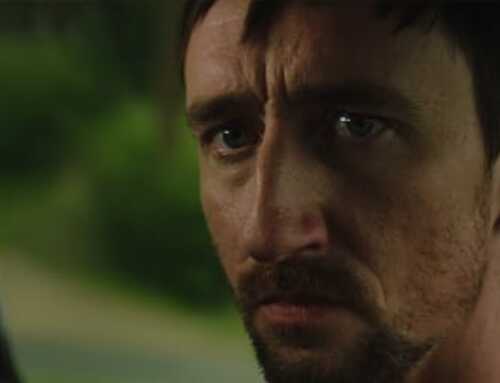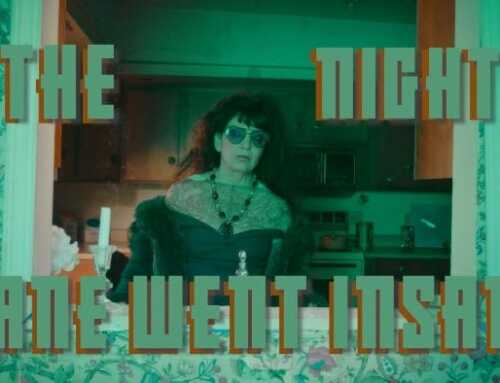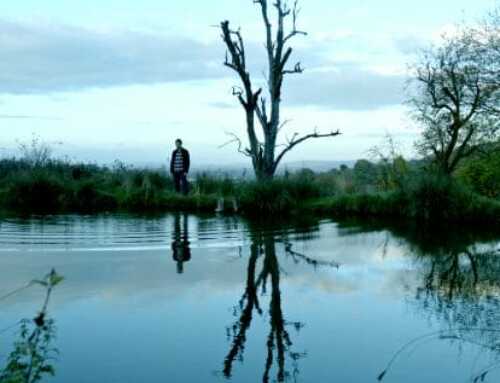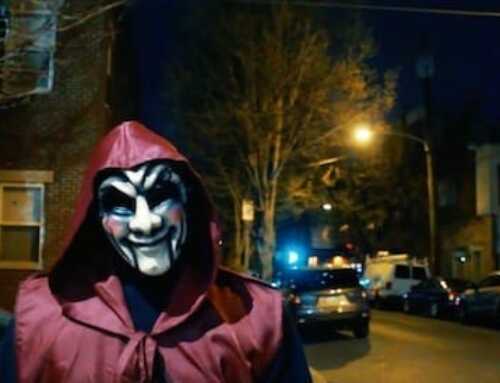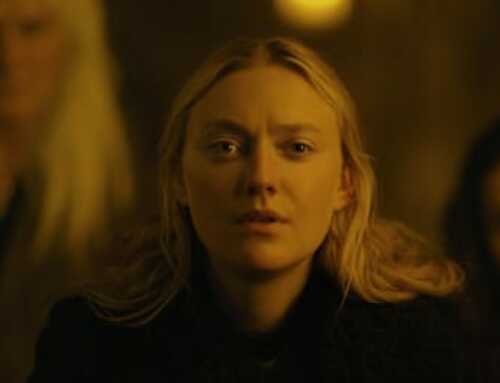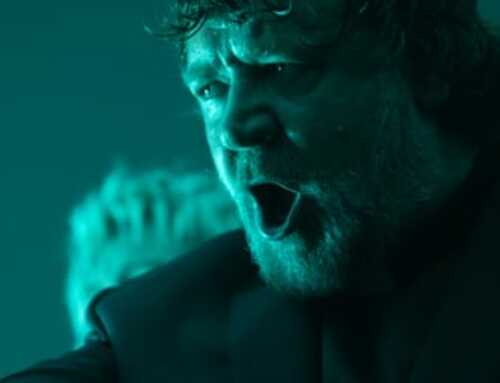Directed and co-written by Fernando Fraiha, Welcome, Violeta is a psychological thriller that employs a slow-burn progression tactic for its storyline and is wholly satisfying in its orchestration. Welcome, Violeta teaches a great many lessons, but most notably, be careful of who you idolize, as the story sees its protagonist both disassociate and obsess over herself, the fictional character she is creating, and the mentor guiding her creative process. Welcome, Violeta boasts beautiful visual storytelling and deeply insightful and emotional dialogue, as well as a compelling premise of a seemingly singular character journey that develops into two journies.
After the success of a novel, author Ana (Débora Falabella) is feeling the pressure of writing again and is in need of help in making her art more powerful. She finds herself at a remote residence where a man named Holden (Darío Grandinetti) conducts a writers’ retreat and guides residents through his unorthodox and demanding techniques. Ana commits herself to the techniques, acting out her character in real life in order to develop and write authentic motivations. This immersion causes Ana to break free from her writer’s block but at the cost of her own identity, as she loses control to her artistic expression, guided by the manipulative hands of her egoistic mentor.
Director Fraiha creates a palpably uncomfortable atmosphere through visuals that are just as telling as the dialogue. The screenwriting and editing work together to foreshadow the sinister happenings that are to come in Welcome, Violeta, revealed in minute details as this slow burner unfolds. The film has a number of oscillations, having the character dialogue go back and forth between English and Spanish language, as well as back and forth between cinematic and shot-on-video, and between peaceful and discordant sounds. The film’s characters speak poignant and wise words as the story delves into the psyche of the traditional writer, displaying the personal torment that is a writer’s worst nightmare — writer’s block. Welcome, Violeta‘s characters break and build both themselves and their writings under the watchful eye and challenging tutelage of the demanding writing mentor, Holden, played by Darío Grandinetti.
As the writers discuss their work, the inner workings of their identities are likewise revealed, most notably the protagonist, Ana, played by Débora Fabella in a vulnerable but powerful performance. Each workshop that Ana is subjected to grows more intense than the last, as well as more mysterious, as the mentor’s questionable tactics continually go unquestioned. Camera angles and lighting are used in beautiful and brilliant ways to display power and dominance, as well as Ana’s increasing disorientation. A theme of duality eventually presents itself through Ana’s character development, climaxing as a “Black Swan-esque” experience, as she melds herself with her fictional character in order to achieve her peak writing abilities.
Welcome, Violeta is a movie that pulled me in from start to finish, and my only gripe is that despite the slow burner pace, the character development of the protagonist somehow felt hurried. I thought her progression into dark tendencies happened without much prodding, however, the darker tendencies were a joy to watch nonetheless. This seemingly hurried descent could be due to Welcome, Violeta being inspired by Daniel Galer’s romance novel Cordilheira, and so some character development that is more fleshed out in the book may have been cut for the film adaptation. In any case, Welcome, Violeta was an excellent watch, and I would even say that is required viewing for literary practitioners, as the experience of writer’s block is sure to resonate, making the film a potentially cathartic watch.
7.75 out of 10
| Welcome, Violeta | ||
| RATING: | NR |
|
| Runtime: | 1 Hr. 46 Mins. | |
| Directed By: | ||
| Written By: | ||


